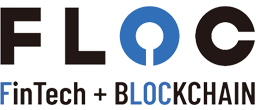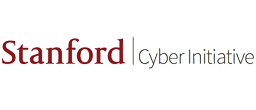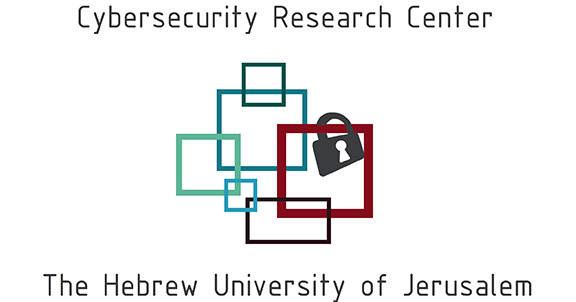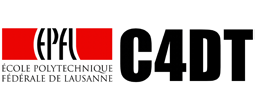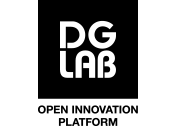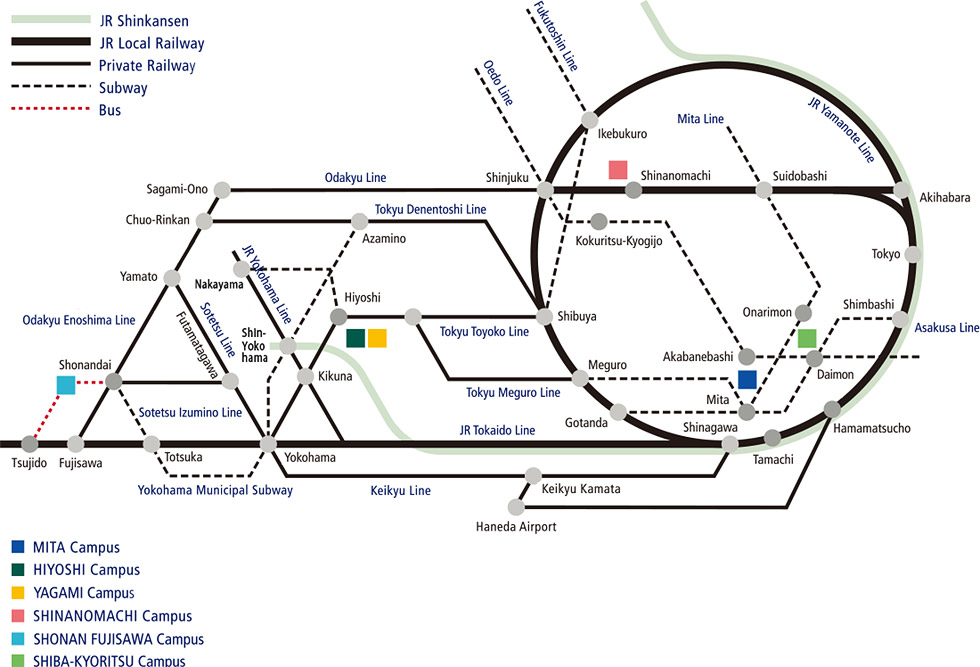Kaizen
Scaling Bitcoin ‘Kaizen’, focuses on the systematic identification of portions of the Bitcoin protocol that best lend themselves to continuous, non-’consensus layer’ improvement.
‘Kaizen’ focuses on the refinement of Bitcoin’s existing impressive security, integrity and performance properties by identifying opportunities to drive further algorithmic efficiency and rigorous testing.
Particular attention will be paid to the precision engineering of all aspects of Bitcoin’s quality assurance processes, such as unit, integration and system-level testing, testnet data gathering and analysis, streamlining toolchain support and the verification and validation of existing integrity testing and distribution approaches.
Sponsors
Workshop Sponsorship
If you are interested in sponsoring the Scaling Bitcoin Workshop, please contact: contact@scalingbitcoin.orgImportant Dates:
- 2018-10-01 23:59 UTC - Submission of logos for print (must be submitted in AI or SVG vector file formats)
Travel Subsidy
Important Dates:
- 2018-08-15 23:59 UTC - Last day for travel subsidy application
- 2018-09-01 23:59 UTC - Deadline for applicant acceptance notification
- 2018-11-01 23:59 UTC - Deadline for submission of travel receipts
Travel Subsidy Application Questions
If you are interested in applying for travel subsidy, please fill out the following form: https://goo.gl/forms/TT9WJKa1ZAbBaNa93Call for Proposals
The current Scaling Bitcoin Workshop will take place Fall 2018 in Keio University 2 Chome-15-45 Mita, Minato-ku Tōkyō-to 108-8345, Japan. We are accepting technical proposals for improving Bitcoin performance including designs, experimental results, and comparisons against other proposals. The goals are twofold: 1) to present potential solutions to scalability challenges while identifying key areas for further research and 2) to provide a venue where researchers, developers, and miners can communicate about Bitcoin development.
We are accepting two types of proposals: one in which accepted authors will have an opportunity to give a 20-30 minute presentation at the event, and another where accepted authors can run an hour-long interactive workshop.
This year we would like to place a stronger focus on the following topics:
- Simulation, modeling and testing
- Methods and tools for simulation and testing of blockchain behavior
- Game theory and Mechanism Design
- Fungibility
- Enhancement of Scripting
- New Validation Methods
Other topics of interest include:
- Improving Bitcoin throughput
- Layer 2 ideas (i.e. payment channels, etc.)
- Security and privacy
- Incentives and fee structures
- Network resilience
- Anti-spam measures
- Block size proposals
- Empirical mining data
All as related to the scalability of Bitcoin.
Apart from general presentations and workshop, we plan to accept a limited number of short engineering presentations to cover state-of-the-art engineering progress after the submission deadline. Details of the short presentation submission will be announced later.
While proposals that may apply to digital currencies in general are welcome, this event deals with the scalability of Bitcoin, and submissions which focus primarily on other digital currency systems are out of scope for this event.
Important Dates
- 2018-07-10 23:00 UTC - Last day for submission
- 2018-08-15 23:59 UTC - Last day for notification of acceptance and feedback
Reviewing Process
For the regular presentation proposals, review is conducted by double blind reviewing process. Submissions must be anonymous, with no author name, affiliations, acknowledgement or obvious reference.
Formatting
Proposals may be submitted as a BIP, as a 1-2 page extended abstract, or a paper describing ideas, designs, and expected experimental results. Indicate in the proposal whether you are interested in speaking, running an interactive workshop, or both. If you are interested in running an interactive workshop, please include an agenda.
All submissions are processed on EasyChair. Please submit your proposal through the following URL:
Proposals should be submitted by 2018-07-10 23:00 UTC.
PLEASE NOTE: Due to multiple requests, after the original date of 2018-07-02, the Program Committee has re-opened submissions on 2018-07-07 16:00 UTC with a firm deadline on 2018-07-10 16:00 UTC.
Presentations
- All talks will be live-streamed and published online, including slide decks.
- Scaling Bitcoin Workshop does not have proceedings.
- There are no submission restrictions - authors of presented submissions can submit to any other conference.
Call for Proposals to Work-in-progress (WIP) and informative sessions
Scaling Bitcoin Kaizen will include a session for sharing technological progress updates and information to help further thinking and discussions on scalability.
We encourage anyone attending Scaling Bitcoin Kaizen 2018 in Tokyo who is interested in presenting their progress/idea/information to submit a proposal with name, title, affiliation and abstract up to 1 page. The submission deadline is 2018-10-04 23:59 UTC. The time allotment for each presentation will be decided based on the total number of submissions and their contents.
As with general presentations, any advertisement, information regarding specific businesses, or ICOs will not be acceptable. The WIP session will be strictly focused on technical discussion.
Please email your submissions to scalebit18@easychair.org
Workshop
How do the Workshops work?
- Events are live-streamed with remote participation facilitated via IRC for parallel online discussion and passing questions to the event.
- These workshops aim to facilitate the existing Bitcoin Improvement Proposals process. Most work will be done outside of the workshops in the intervening months. The workshops serve to be additive to the design and review process by raising awareness of diverse points of view, studies, simulations and proposals.
- Travel, venue details, accommodation recommendation are available below.
- Please see the FAQ section below, it should answer most other questions.
Schedule
Notes: Print
Print
- If you have any special dietary requirements or allergies, please e-mail contact@scalingbitcoin.org so that we can accommodate.
- The final workshop layout will be published during the lunch break.
Schedule
Introduction
Current State of Bitcoin
On-Chain Scaling
Scaling Security
Scriptless Scripts and Multi-party Channels
Open
Architecture
Lightning Network
Interoperability
Discussion groups
Remote Participation
-
9:00 JST / 20:00 EST / 12:00 UTC / 17:00 PST :Day 1 Part 1
-
9:00 JST / 20:00 EST / 12:00 UTC / 17:00 PST :Day 1 Part 2
-
14:00 JST / 1:00 EST / 5:00 UTC / 22:00 PST :Day 1 Part 3
-
15:35 JST / 2:35 EST / 6:35 UTC / 23:35 PST :Day 1 Part 4
-
17:35 JST / 4:35 EST / 8:35 UTC / 1:35 PST :Day 1 Part 5
-
9:00 JST / 20:00 EST / 12:00 UTC / 17:00 PST :Day 2 Part 1
-
10:35 JST / 21:35 EST / 1:35 UTC / 18:35 PST :Day 2 Part 2
-
13:00 JST / 12:00 EST / 4:00 UTC / 21:00 PST :Day 2 Part 3
Location
Tōkyō-to 108-8345, Japan
Register
We are sorry, but the event has been sold out.
You will still be able to participate via the live stream, IRC, and Twitter.
Due to space limitations, we will not be able to admit anyone at the door.
FAQ
-
I need some sort of document for a travel visa
(Info: https://en.wikipedia.org/wiki/Visa_policy_of_Japan) You are responsible for identifying your own personal visa requirements to enter Japan. If you have any questions please contact contact@scalingbitcoin.org
-
I can’t go but I want to participate!
The event will be livestreamed, and you will be able to participate via IRC. Although it is naturally easier to participate in person, everyone at the event will have a desk in front of them and will be encouraged to join in online discussions with global participants who are viewing the live stream. It is also important to understand that no decisions are to be made at the workshop. (read more below)
-
How do I give a presentation?
You can submit your proposal to proposals@scalingbitcoin.org (see CFP above). If you’ve worked on research, we recommend that you post the results, including papers, simulation results, and source code, to the bitcoin-dev discussion list. Depending on the quantity of accepted presentations, the workshop will allot a fair amount of time to each presenter. If people have substantially overlapping plans, they may be suggested to merge. Publishing a paper is NOT required—if you have a good presentation plan, you can propose a detailed summary.
- Are any decisions made at the workshop?
Absolutely no decisions are made at workshops, as this would run the risk of being rushed and unfair to the global community unable to attend in person. The workshop is about raising awareness of issues and proposals, finding common ground, and encouraging public discussion within the existing mechanism of technical progress through the Bitcoin Improvement Proposal process.
- Will there be a debate?
There will probably be no debate, and the workshop organizers and participants will be operating with the goal of making the event low-stress and non-confrontational. The intent of the workshops are to showcase diverse points of view and promote open-mindedness in order to improve our collective understanding of how to improve Bitcoin’s scalability. In-person debates could too easily do a disservice to the future of Bitcoin in being about solidifying simplified positions for the purpose of winning political points. It would be unreasonable to entrust the safety and security of the future of Bitcoin to smooth talking at a one-time event rather than deliberate technical study with time for the global community to weigh in.
- Can we discuss governance of the Bitcoin projects at this workshop?
Scaling Bitcoin Workshops are focused on raising technical awareness of scalability issues, simulations and proposals to improve scalability. Conference participants want this event to be entirely focused on the science and engineering, which is how Open Source Software development has proven to deliver excellence.
- Future Workshops? Workshop BIP?
We aim to host a Scaling Bitcoin Workshop once per year. If you would like to host next year's event please e-mail to contact@scalingbitcoin.org
- Are there Vegetarian, Gluten-Free Options for the Food?
Yes. Please email contact@scalingbitcoin.org if we can be of any assistance.
- Is there Wheel Chair Access to these social events?
Yes, all venues have been audited and are wheel-chair friendly. Please email contact@scalingbitcoin.org if we can be of any assistance.
Online Resources
- Bitcoin-Workshops-Announce list https://lists.linuxfoundation.org/mailman/listinfo/bitcoin-workshops-announce
- Bitcoin-Workshops discussion list https://lists.linuxfoundation.org/mailman/listinfo/bitcoin-workshops
- #bitcoin-workshops chat on the Freenode IRC network http://webchat.freenode.net/?channels=bitcoin-workshops
Traveling to Japan
-
Mobile Internet Access
If you arrive to Haneda Airport, right as you exit customs into the arrival hall, at your 3-4 o'clock (to the right of the exit) you will find a number of mobile internet providers. You can obtain a local sim that will give you few GB of internet, or you can obtain an LTE/WiFi hotspot that will give you unlimited internet access with up to 150 Mbits downlink at a cost of ~$15/day. If you plan on working during your trip, we highly recommend LTE/WiFi hotspot.
Internet is especially crucial for navigation. Google maps is extremely helpful when trying to get from point A to point B, but without internet access and thus without Google Maps you may end up being stranded asking for directions.
-
Access to Banking / ATM
If you need access to an ATM, frequently the best option is to use 7-11 stores. 7-11 stores can be found every few blocks and each 7-11 store has an ATM inside.
-
Payment (Suica cards)
In Japan, the common form of micro-payments are RFID/NFC cards that can be charged at charging terminals and used in stores.
As you exit customs, at around 11 o'clock, there is a JR service counter. You can obtain a Suica card there and have them charge it. You can immediately use the Suica card to pay for the subway entrance.
-
Trains & Japan Rail (JR) Lines
One of the best ways to travel Japan is by Shinkansen trains (known as a Bullet/Arrow train). Tickets to this train are expensive if obtained on the spot. However, foreigners can obtain weekly passes, that allow use of Shinkansen trains and provide for free entry to JR subway lines.
JR weekly passes can not be purchased in Japan! They can only be obtained from your local travel agency that handles Japanese destinations. The travel agency will provide you with voucher that can then be obtained at the JR service counter in the Haneda airport. You can also get JR passes online, for example here - https://www.japan-rail-pass.com
Please note that JR passes do not give you access to all high-speed trains. Specifically you can not take NOZOMI and MIZUHO trains on the Tokaido, Sanyo and Kyushu Shinkansen lines. JR pass holders can use only HIKARI, SAKURA, KODAMA or TSUBAME lines.
Shinkansen high-speed trains connect directly to subway, are very comfortable and allow you to travel to many locations in Japan within 2-3 hours. You typically do not need reservations as each train contains few non-reserved cars that are typically only half-full.
About
Scaling Bitcoin Planning Committee
- Anton Yemelyanov, Base58 Association NPO. (Planning Committee Chair)
- Nelly Milanova, Base58 Association NPO.
- Jeremy Rubin, Bitcoin Core Contributor
- Neha Narula, MIT DCI
- Ethan Heilman, Boston University
- Ferdinando M. Ametrano, Bitcoin and Blockchain Technology professor at Politecnico di Milano
- Byron Gibson, Engineering Consultant and Startup Advisor
Workshop Host Committee
- Taro Watanabe, Digital Garage (Chairman)
- Shigeya Suzuki, Keio University
- Kanta Matsuura, The University of Tokyo
- Shin'ichiro Matsuo, Georgetown University, BSafe Network
- Anditto Heristyo, DG Lab
Program Committee
- Shin'ichiro Matsuo, Georgetown University, BSafe Network (Program Committee Co-Chair)
- Elaine Ou, Global Financial Access (Program Committee Co-Chair)
Engineering Perspective
- Bryan Bishop, LedgerX, Bitcoin Core Contributor
- Riccardo Casatta, Eternity Wall
- Fabrice Drouin, Acinq
- Jameson Lopp, BitGo
- John Newbery, Chaincode
- Olaoluwa Osuntokun, Lightning Labs
- Rusty Russel, Blockstream
- Jonas Schnelli, Bitcoin Core Contributor
- David Vorick, Nebulous Labs
- Eric Voskuil, LibBitcoin
Academic Perspective
- Joseph Bonneau, New York University
- Benedikt Bunz, Stanford University
- Ittay Eyal, Technion Israel Institute of Technology
- Ethan Heilman, Boston University
- Brian Levine, University of Massachusetts at Amherst
- Kanta Matsuura, The University of Tokyo
- Ian Miers, Johns Hopkins University
- Patrick McCorry, King's College London
- Shigeya Suzuki, Keio University
- Aviv Zohar, The Hebrew University of Jerusalem
Subsidy Committee
- Neha Narula, MIT DCI
- Nelly Milanova, Base58 Association NPO.
- Taro Watanabe, Digital Garage
- Océane Boulais



















